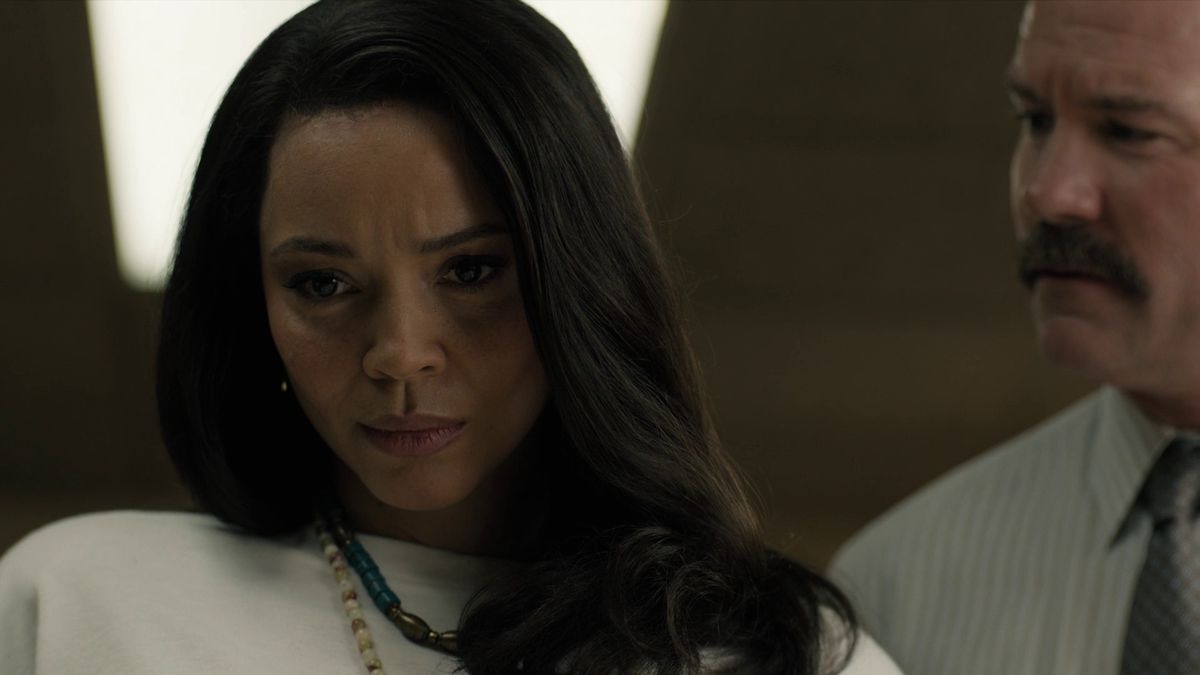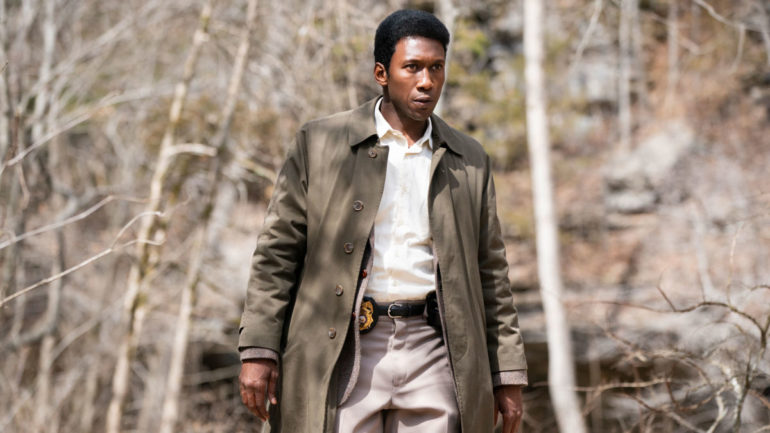For hardcore True Detective fans, the beginning of this new season would have been comfortingly familiar. Missing children, cultish effigies, and questionable parents all spelled excellence for viewers wanting a return to Matthew McConaughey and Woody Harrelson’s gritty Louisiana mystery that spiralled into something much bigger and more sinister than it first appeared.
This time around, we stepped into the shoes of Detectives Wayne Hays (an excellent Mahershala Ali), his partner Roland West (Stephen Dorff), and Hays’ wife Amelia (Carmen Ejogo) – a character whose arc is arguably as vital as the titular detectives’. Similar to the initial offering that spanned decades, season 3 covers a period from 1980 – 2015, as Hays’ deteriorating mental state makes it hard to conclude a case that’s left him in the dark for most of his adult life. The insidious backdrop of some missing Arkansas children is rife with conspiracies and doubt, and the initial episodes perfectly set the scene for what becomes a sprawling, evasive mystery – one that’s expertly paced across its 8-episode run.
And what a gripping mystery it is. Beginning with who we learn to be the Purcell children saying farewell to their dad (unknowingly for the last time), we watch as they venture off on their push bikes into a corrupt and sinister world that’s all too familiar to fans of this iconic series. Sure enough, things begin to descend into panic and fury; shootouts, bloody interrogations, and cold-blooded murder follow.

Naturally, there’s about a hundred red herrings and loose ends that make this Pandora’s box feel even vaster than it initially seems. Suspects come and go, bodies turn up out of the blue, and fingers are pointed at a dizzying rate. Rather than intentionally mislead and irritate, though, all of this compliments the season’s theme of memory, and how truth can be distorted beyond recognition. It’s not a revelatory subject to touch on in a police drama, but it’s rarely handled with such precise care and attention. In fact, the climactic final scene is one of the most perfect – yet agonising – ways I’ve seen memories dealt with in the medium.
It would be easy to write-off the successes of this season as little more than pastiches of Rust Cohle and Marty Hart’s adventures in the bayou, as a lot of the hallmarks that made it previously so enthralling are present here. The interrogation framing device, which initially sees Ali recounting the events of the initial 1980 investigation in 1990, could rub some the wrong way as a direct copy of what writer Pizzolatto has done before. However, this is soon developed beyond mimicry, when it’s revealed that present-day (at least, almost) Wayne Hays has a fragmented memory and something akin to dementia: “My brain’s a bunch of missing pieces,” he says during an interview with investigative journalist, Elisa Montgomery (Sarah Gadon).
It’s worth noting that picking up these missing pieces can get rather tricky, especially when we’ll jump from 1980 to 1990 to 2015 all within one seamless scene. This often pays off as a clever storytelling device, showing how Hays has allowed his past to consume both his present and apparent future, but it can be disorientating if you don’t give your absolute, unwavering attention. True Detective’s always been a series that somehow slots hundreds of gears together and still chugs along beautifully, but if you’re coming here straight off of a standard procedural, prepare to be panting to keep up.

This would be nothing without the flawless figures in the leads. Mahershala Ali has been killing it with everything lately, appearing as the likes of Luke Cage’s ‘Cottonmouth’ and a pivotal role in 2016’s Moonlight, but this may well be the finest performance I’ve ever seen him deliver. His ability to flawlessly depict three stages of a man’s life, with incredible work done by the make-up team, makes this sprawling epic all the more believable. It’s heartbreaking to see the ghosts of Wayne’s past haunt him as a lonely, old man, but it’s just as devastating to see him as a young Vietnam veteran, hunting for two missing children in the ’80s, and knowing full well that the disappearance will stalk him for decades to come.
This isn’t to discount the surrounding cast, though, who make season 2’s ensemble look amateur (and I actually liked season 2). Dorff’s performance as Ali’s partner, Detective Roland West, is equally transformative, and to see how the two men change – and yet stay painfully the same – throughout their careers is just as enjoyable as McConaughey’s Rust Cohle and Harrelson’s Marty; perhaps even more so. Almost unlike any other crime programme around, True Detective has always managed to finely balance the impact of personal stories with an overarching crime plot, and this instalment might be the best example of this we’ve had.
Then there’s the mystery of the missing children itself, which flies and loops like a nightmarish rollercoaster, always hinting at answers but keeping them just out of grasp. For some, the agonising teasing that Pizzolatto injects into every hour-long burst may be close to unbearable. It’s true that there are a handful of episodes that feel irritatingly obtuse, but taking everything as a whole (once this season’s bittersweet conclusion is reached) results in a much more cohesive package. Detective Hays’ memory may be a bunch of missing pieces, but this excellent series of anthology television isn’t missing a single thing.
Some of the coverage you find on Cultured Vultures contains affiliate links, which provide us with small commissions based on purchases made from visiting our site.


